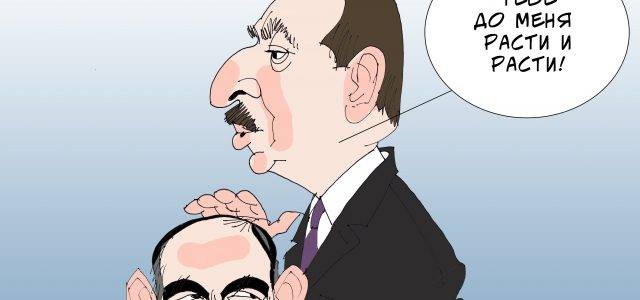Secretary of the Security Council of Armenia Armen Grigoryan put forward new negotiating positions at a sensational level in negotiations with Azerbaijan on signing a peace treaty. The main basic principle: the conclusion of a peace treaty with Baku is possible without a final decision on the status of Nagorno-Karabakh. According to him, “there is such an idea, but at this stage it is too early to talk about any such resolution.” Nevertheless, it must be assumed that this position was agreed with the Prime Minister of Armenia Nikol Pashinyan and can become or has already become a guide in actions for Armenian diplomacy.
Now for the important details. Grigoryan noted that Yerevan considers acceptable the five-point document on the normalization of relations proposed by Baku, and that Armenia has no territorial claims against Azerbaijan. In this context, the Karabakh problem for Yerevan does not qualify as a territorial issue and is perceived in the “fundamental aspect” of the security and rights of the Armenians living in the territory of Karabakh. In this regard, Grigoryan stressed that the presence of Russian peacekeepers is an international guarantee of the security of the Karabakh Armenians, and, in his words, “at present, it is necessary to work on further strengthening this guarantee, but an important idea is the demilitarization of the Nagorno-Karabakh problem.” By the way, certain steps have already been taken in this direction. Earlier, Grigoryan reported that after September, conscripts from Armenia would not be sent to Karabakh. By this time, the process of the withdrawal of the Armenian army from the region should also be completed.
With such a course of events, the text of the proposed peace treaty between Armenia and Azerbaijan will not mention the status of Nagorno-Karabakh at all. According to Yerevan, the responsibility for the security of the Armenian enclave is shifted onto the shoulders of Moscow, more precisely, its peacekeepers. As for Azerbaijan, today it declares that it considers the Armenians living in this territory to be its citizens, and speaks about the possibilities of observing their rights. But in real conditions, when the preparation of a peace treaty is taking place at an accelerated pace, it is unlikely that it will be possible to quickly change the information and political situation regarding the Armenians of Nagorno-Karabakh on the mental level so that they feel safe. For a certain period of time, this will indeed be done by Russian peacekeepers, whose mandate may be extended on the basis of certain specific Russian-Azerbaijani agreements.
So far, there are no signs that Baku intends to restore Nagorno-Karabakh in the status of autonomy. There is also a well-known point of view of Pashinyan. “Among the Armenian society, as a result of certain propaganda, an opinion has formed that if we say “the final status of Nagorno-Karabakh”, then this means the independence of Karabakh,” he said in the Armenian parliament. “And who said that?” At the same time, for some reason, he is sure that “after 2016, Karabakh lost all practical and theoretical opportunities to be outside of Azerbaijan.” Azerbaijani President Ilham Aliyev gives this period a different assessment when he points out that after the “April war” of 2016, at the negotiations in Vienna, hastily organized by the United States, the prepared text of the statement contained provisions on the non-use of force and a position on the need to resolve the Karabakh conflict exclusively political and diplomatic means. But it was decided differently, namely under Pashinyan, during the second Karabakh war.
Now Aliyev, in case of signing a peace treaty with Armenia, can firmly consolidate the new status quo in the region. As for the rest, it cannot be ruled out that the legally existing, but actually collapsed, OSCE Minsk Group will try to join the issue of the status of Nagorno-Karabakh. Moreover, the problem of Nagorno-Karabakh formally retains its political and international character, since there were resolutions of the UN Security Council, the UN General Assembly. In this direction, a lot of what is happening remains closed to experts. One thing is clear: Pashinyan is taking Armenia out of the Karabakh equation, which does not mean an easy solution for Aliyev, who will have to face a difficult confrontation between external forces and centers that make world and regional politics in the new geopolitical conditions.

